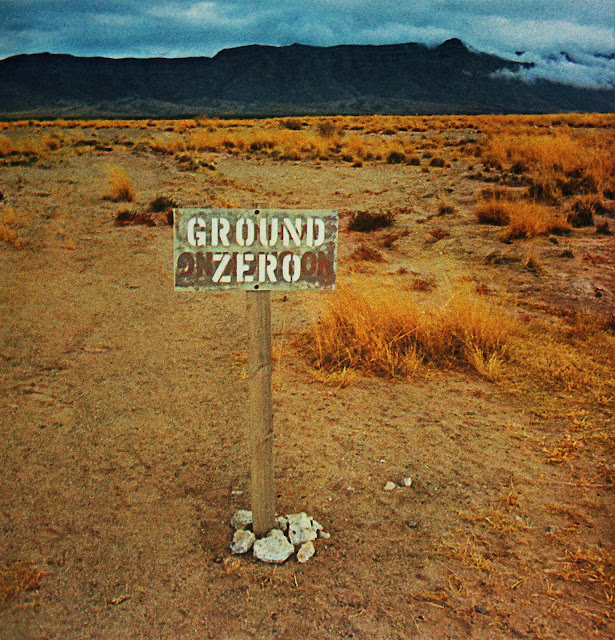The Long Night
by Iain Boal
Winter Solstice 2010
4.30 AM, BERKELEY---Later today, in the hours between total lunar eclipse and the longest night, the US Federal Communications Commission (FCC) will be discussing an Order (drafted by its chairman and Obama appointee) which spells the end of the internet as a common carrier, and will allow "paid prioritization" by big capitalist firms. We have lived through the opening military-socialist phase of the planetary telecommmunications system, whose infrastructure required public subvention and state action far beyond the ability of private capitals - cold war computing and informatics, Pentagon ballistics and telemetry, DoD funded materials science, rocketry and satellite R & D, eminent domain and state seizures as necessary, etc. Now Big Telecom is poised and the electromagnetic enclosures are beginning in earnest; the camel's nose is the (de)regulation of the internet in its etherial mode, the so-called "mobile services".
The opinion of the mass of commoners counts for nought, and the silent compliance of public servants and officials is at this stage a given, as when in 1800 the seizure of the commons could be completed, no longer in "letters of blood and fire", but with the stroke of the pen in Parliament by means of private members' Bills of Enclosure. In 2010 it takes a comedian-turned-US senator, aghast at the idea of Comcast customers being blocked from Netflix, to describe the prospects:
4.30 AM, BERKELEY---Later today, in the hours between total lunar eclipse and the longest night, the US Federal Communications Commission (FCC) will be discussing an Order (drafted by its chairman and Obama appointee) which spells the end of the internet as a common carrier, and will allow "paid prioritization" by big capitalist firms. We have lived through the opening military-socialist phase of the planetary telecommmunications system, whose infrastructure required public subvention and state action far beyond the ability of private capitals - cold war computing and informatics, Pentagon ballistics and telemetry, DoD funded materials science, rocketry and satellite R & D, eminent domain and state seizures as necessary, etc. Now Big Telecom is poised and the electromagnetic enclosures are beginning in earnest; the camel's nose is the (de)regulation of the internet in its etherial mode, the so-called "mobile services".
The opinion of the mass of commoners counts for nought, and the silent compliance of public servants and officials is at this stage a given, as when in 1800 the seizure of the commons could be completed, no longer in "letters of blood and fire", but with the stroke of the pen in Parliament by means of private members' Bills of Enclosure. In 2010 it takes a comedian-turned-US senator, aghast at the idea of Comcast customers being blocked from Netflix, to describe the prospects:
"Internet service giants like Comcast and Verizon want to offer premium and privileged access to the Internet for corporations who can afford to pay for it...For many Americans - particularly those who live in rural areas - the future of the Internet lies in mobile services. But the draft Order would effectively permit Internet providers to block lawful content, applications, and devices on mobile Internet connections. Mobile networks like AT&T and Verizon Wireless would be able to shut off your access to content or applications for any reason. For instance, Verizon could prevent you from accessing Google Maps on your phone, forcing you to use their own mapping program, Verizon Navigator, even if it costs money to use and isn't nearly as good. Or a mobile provider with a political agenda could prevent you from downloading an app that connects you with the Obama campaign (or, for that matter, a Tea Party group in your area).
It gets worse. The FCC has never before explicitly allowed discrimination on the Internet - but the draft Order takes a step backwards, merely stating that so-called "paid prioritization" (the creation of a "fast lane" for big corporations who can afford to pay for it) is cause for concern. It sure is - but that's exactly why the FCC should ban it. Instead, the draft Order would have the effect of actually relaxing restrictions on this kind of discrimination.
But grassroots supporters of net neutrality are beginning to wonder if we've been had. Instead of proposing regulations that would truly protect net neutrality, reports indicate that Chairman Genachowski has been calling the CEOs of major Internet corporations seeking their public endorsement of this draft proposal, which would destroy it. No chairman should be soliciting sign-off from the corporations that his agency is supposed to regulate - and no true advocate of a free and open Internet should be seeking the permission of large media conglomerates before issuing new rules.
After all, just look at Comcast - this Internet monolith has reportedly imposed a new, recurring fee on Level 3 Communications, the company slated to be the primary online delivery provider for Netflix. That's the same Netflix that represents Comcast's biggest competition in video services. Imagine if Comcast customers couldn't watch Netflix, but were limited only to Comcast's Video On Demand service. Imagine if a cable news network could get its website to load faster on your computer than your favorite local political blog. Imagine if big corporations with their own agenda could decide who wins or loses online."
The tireless tribunus populi, Alexander Cockburn, as editor of a dissenting online newsletter, knows what is at stake, and in the fortnight since he sounded the following clarion call in CounterPunch the stakes have become even clearer as the first full-blown popular cyberwar unfolds, with its unlikely epicenter at Ellingham Hall, the ancient seat of Norfolk gentry in the Waveney Valley of East Anglia, where Julian Assange is under "manor-house arrest", the guest of Vaughan Smith, a ex-Grenadier Guardsman, crack shot and organic farmer. In honor of two fallen photojournalist colleagues - in Iraq and the Balkans - Smith founded the Frontline Club in London as a hub for unembedded journalism. It is a converted Victorian plumbing factory with a restaurant sourced from the Norfolk estate, a suite of members' rooms upstairs, and a event space on the third floor hosting over 200 talks and screenings a year. While he was staying in one of the flats for visiting independent journalists, Julian Assange could feel the noose tightening. Cockburn understands the connection between l'affaire Assange and the meeting today of the FCC in Washington D.C.:
"The WikiLeaks sites have vanished—though more than 1,400 mirror sites still carry the disclosures. Amazon, Visa, MasterCard, PayPal and the organization’s Swiss bank have shut it down, either on their own initiative or after a threat from the US government or its poodles in London and Geneva. Attorney General Eric Holder is cooking up a stew of new gag stipulations and fierce statutory penalties against any site carrying material the government deems compromising to state security. Commercial outfits like Amazon are falling over themselves to connive at the shutdowns, actual or threatened.
As I outline at greater length in my Beat the Devil column in the current Nation, one of the biggest lessons for us all comes in the form of a wake-up call on the enormous vulnerability of our prime means of communication to swift government-instigated, summary shutdown.
So here we have a public “commons”—the Internet—subject to arbitrary onslaught by the state and powerful commercial interests, and not even the shadow of constitutional protections. The situation is getting worse. The net itself is going private. As I write, Google and Facebook are locked in a struggle over which company will control the bulk of the world’s Internet traffic. Millions could find that the e-mail addresses they try to communicate with, the sites they want to visit, the ads they may want to run are all under Google’s or Facebook’s supervision and can be closed off without explanation or redress at any time.
Here in the US certainly, we need a big push on First Amendment protections for the Internet: one more battlefield where the left and the libertarians can join forces. But we must do more than buttress the First Amendment. We must also challenge the corporations’ power to determine the structure of the Internet and decide who is permitted to use it."








yep.
ReplyDelete